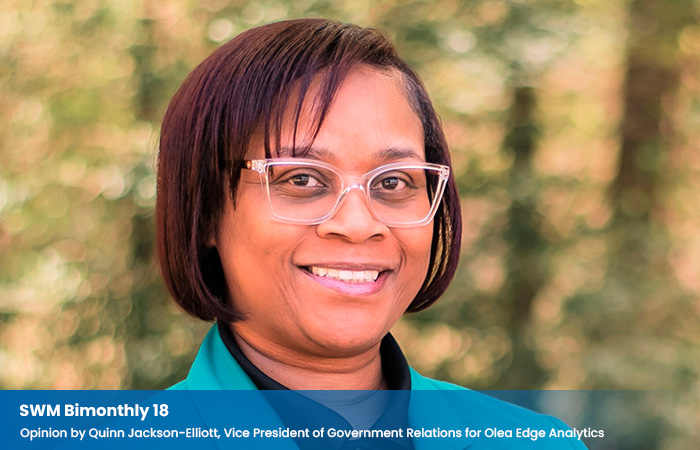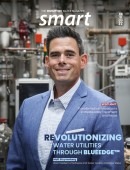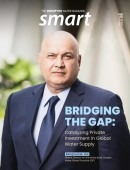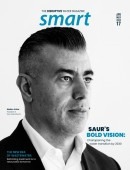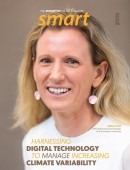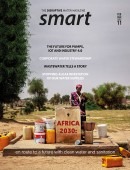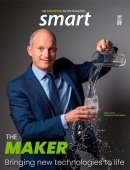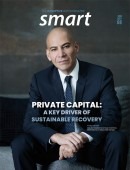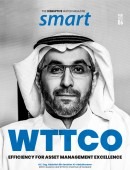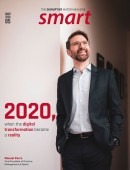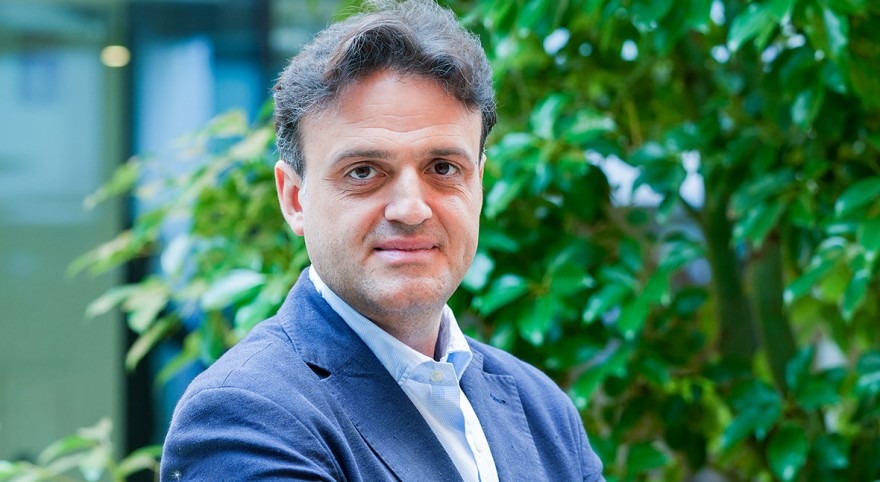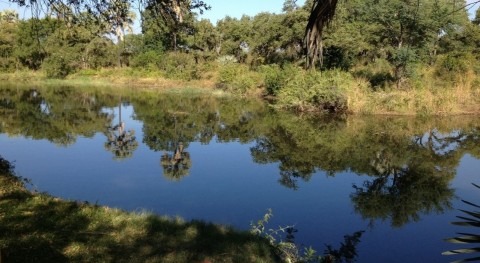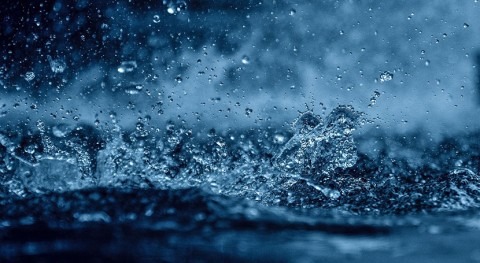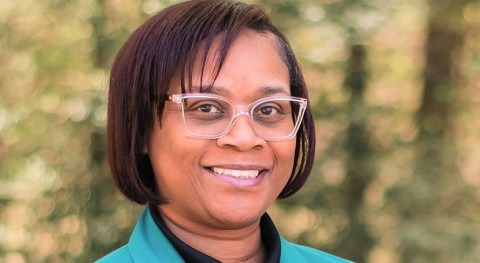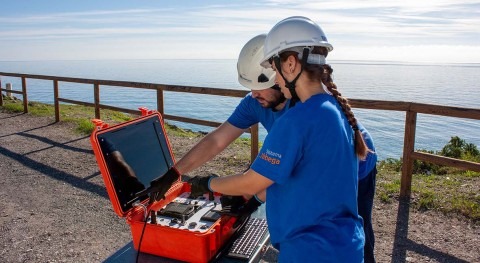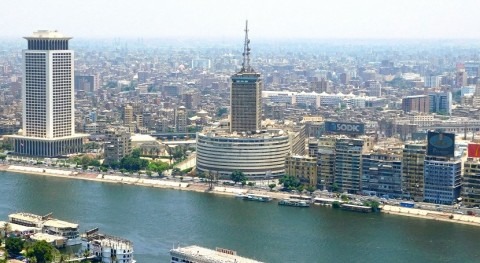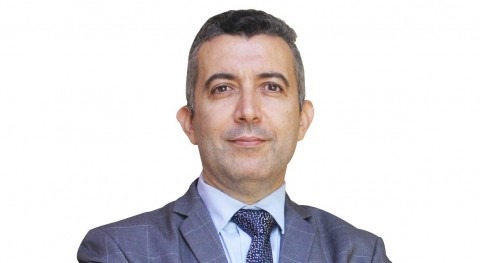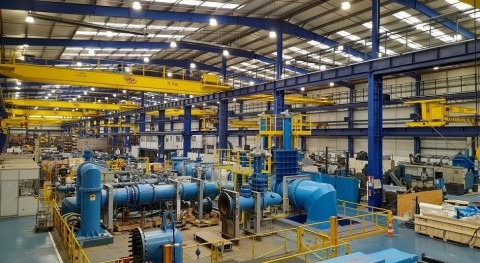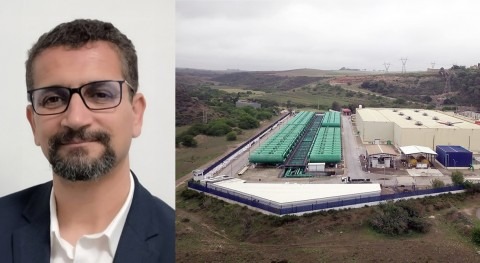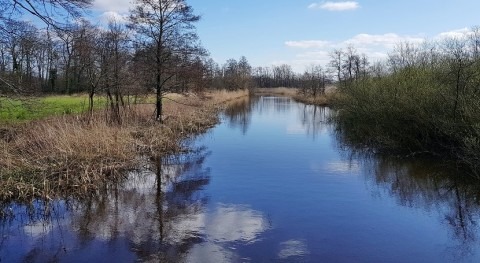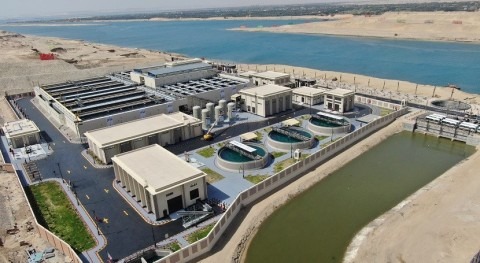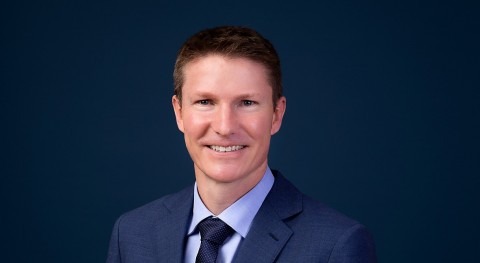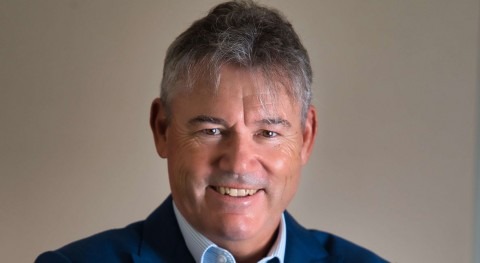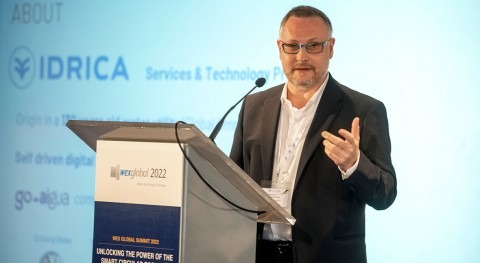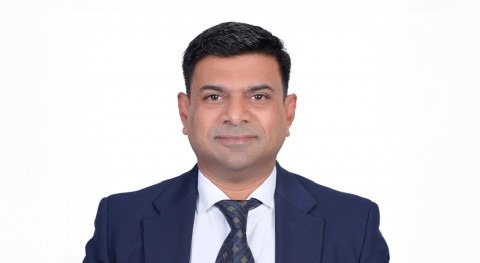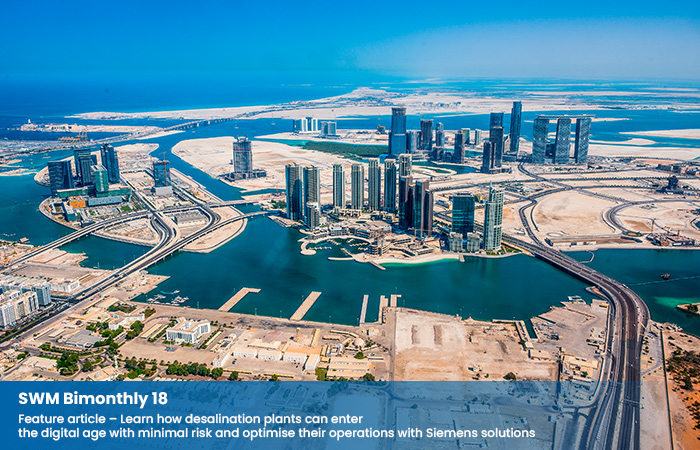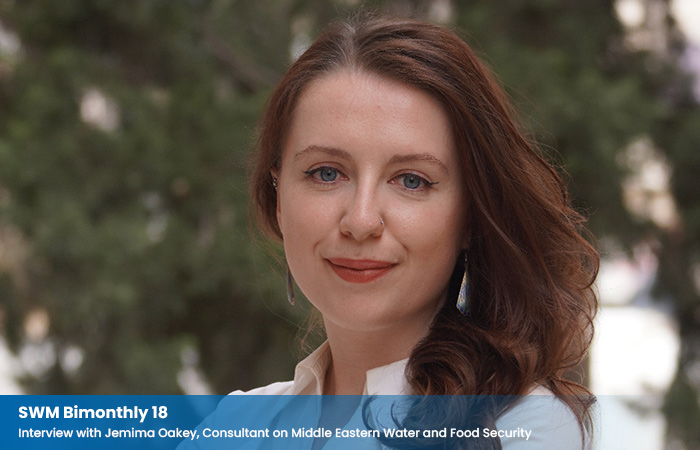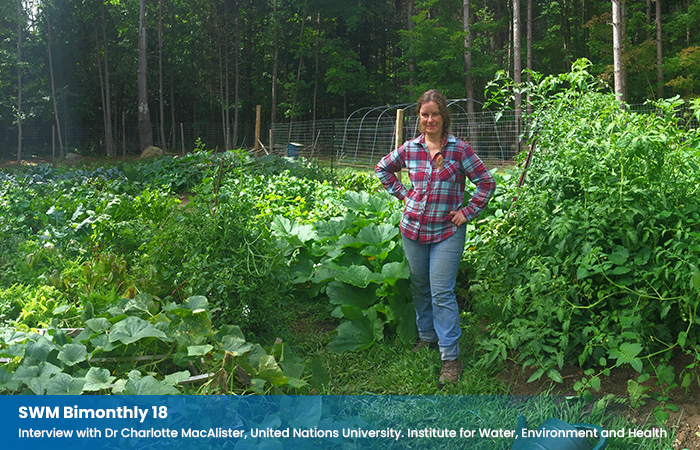Featured content
Content summary
The June issue of Smart Water Magazine Bimonthly is live, with a focus on the Middle East, a hub of water innovation that emerged to deal with water scarcity. The cover features Julio de la Rosa, Business Development Director, Middle East at ACCIONA’s water business. In an exclusive, in-depth interview, he shares with Smart Water Magazine the company’s business strategy for the region and its essential contribution to improving water security. You will also find interviews with other business leaders shaping the water industry in this part of the world, from Veolia Water Technologies, Metito, and EWEC. In the water treatment section, we deal with hot topics such as PFAS removal from water and several related to desalination, including efficiency aspects, brine beneficiation, and renewables. This issue is also strong in the digital sphere, with articles by Siemens on digital twins for desalination, by Aganova on their new Jabega system to monitor pipes, and interviews with Jorge Helmbrecht, Business Development Director at Idrica, analysing long-term digital sustainability, and with Sadasivam Krishnan, Global Growth Officer - Water for Envirosuite, discussing how to achieve the full potential of digital deployments. Do not miss all our usual sections, packed with more interviews, opinions and features, such as an interview with Jemima Oakey, an expert on Middle Eastern Water and Food Security who shares a broad view of water security drivers. Find this and a lot more in Smart Water Magazine Bimonthly 18.
Features
Learn how desalination plants can enter the digital age with minimal risk and optimise their operations with Siemens solutions
With a focus on pumping solutions and optimizing water cycle management, Ingeteam Water makes every water drop count in the Middle East
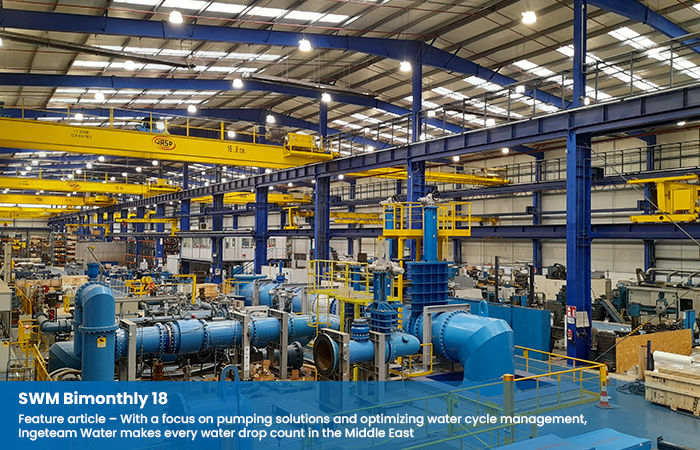
Concerns about PFAS have led to an increased focus on remediation: ECT2’s regenerative technology has been treating PFAS since 2013
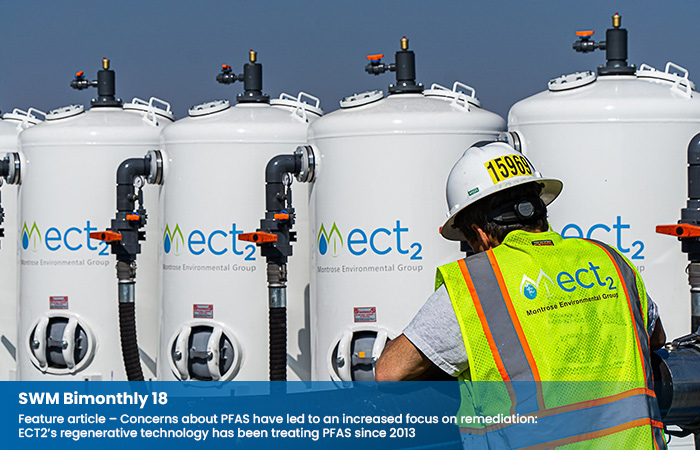
The Jabega solution by Aganova helps obtain information on conflict spots in water networks without interrupting the service
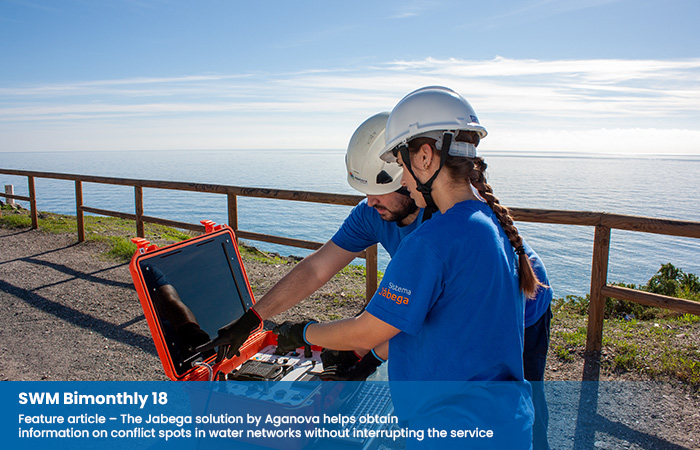
Dr Hassan Aboelnga explores the challenges Egypt faces to finance its water sector on its journey to a prosperous and water-secure future
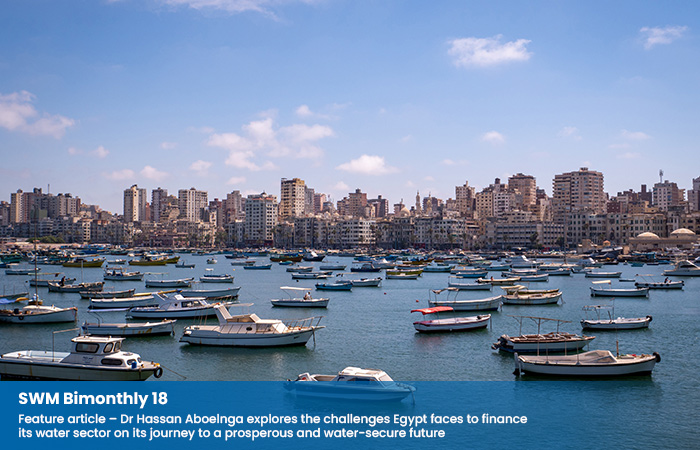
Interviews
Interview with Julio de la Rosa, Business Development Director, Middle East at the water business of ACCIONA
- The integration of renewable energies in water infrastructure is a priority, and sustainable storage batteries can be a turning point
- Shuqaiq 3 is the first public-private collaboration reference for ACCIONA in the region, for the Water Division and also for the Group
- ACCIONA develops plants with RO technology, the desalination technology with the highest efficiency and lowest possible carbon footprint
- In the Middle East, concerns for responsible resource use and lowering the carbon footprint have been key for technology development
- The integration of digital solutions is one of the pillars of ACCIONA's projects in the Middle East, and one of our competitive advantages
- Khobar's digital twin made possible to perform tasks remotely and do simulations that led to a successful start-up amid the pandemic
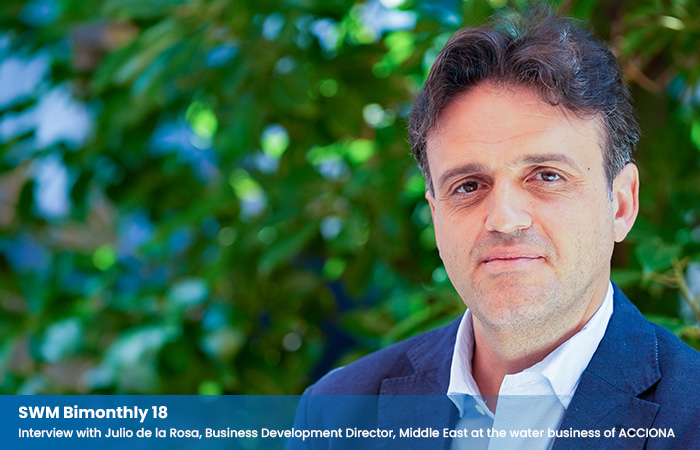
Interview with Sadasivam (Sada) Krishnan, Global Growth Officer - Water for Envirosuite
- We are continuously combining our expertise to develop and deliver innovative digital solutions that better meet the needs of customers
- By defining the goals and objectives of a digital deployment, efforts can focus on areas that will deliver the greatest value
- We are excited to announce that we have signed a multi-license agreement with NEOM for our Plant Designer and Plant Optimiser products
-Krishnan%2C-Global-Growth-Officer---Water-for-Envirosuite-web.jpg)
Interview with Mr Mohamed Chaffi, Director of the Beni Saf desalination plant, Algeria
- In Algeria, water availability per person is relatively low, which poses challenges for drinking water supply, irrigation and industry
- Desalination plants play an essential role in diversifying sources of drinking water in Algeria, particularly in coastal areas
- Filtralite® filter media reduces the amount of water taken from the environment and the cost of running the desalination plant
- Replacing sand with Filtralite® reduces production losses, cuts the water needed for backwashing, and optimises operating costs
- I learned about Filtralite® during a professional event. The characteristics of the product and the advantages offered attracted my interest
- The amount of energy saved in the pre-treatment area is estimated at around 10%. It is thousands of dollars we can save every year
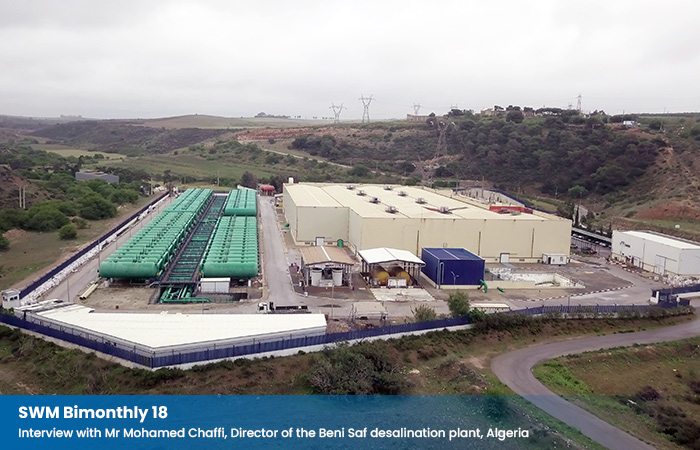
Interview with Jorge Helmbrecht, Business Development Director at Idrica
- The digital transformation is not only about technologies, but also about processes and people, which are essential for success
- A digital approach must help us be efficient, solving specific problems, but also with a long-term vision to achieve digital sustainability
- One of the most important links in the digital value chain is the integration and unification of data from multiple sources
- Without a doubt, the agreement reached with Xylem allows us to play an even more relevant role in the digital transformation process
- New technologies play a crucial role in overcoming the challenges of the water sector and achieving efficient and sustainable management
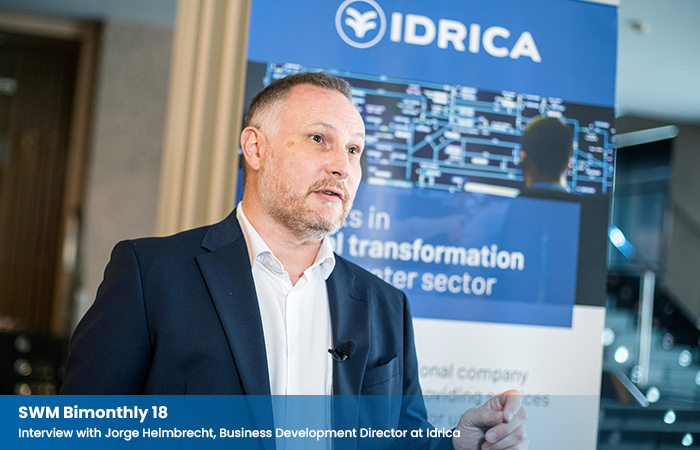
Interview with Thierry Froment, Chief Executive Officer at Veolia Water Technologies Middle East
- Five years ago, Sidem, a Veolia subsidiary, launched The Barrel™, a concept that is changing quite drastically the design of SWRO plants
- While the Barrel™ was developed for desalination applications, we realized its potential for drinking water treatment and wastewater reuse
- Through our specialized business unit SIDEM, we have been pioneering desalination technologies and solutions for over 50 years
- We have achieved an impressive 80% decrease in energy consumption compared to the 1980s, when thermal desalination was predominant
- Regarding deoiling, we recently launched CoaFil™, a patented technology for the treatment of produced water or oily wastewater
- Our AnitaMox™ technology can treat this eluate separately, reducing the load on the STP and enabling it to accommodate a larger sewage flow
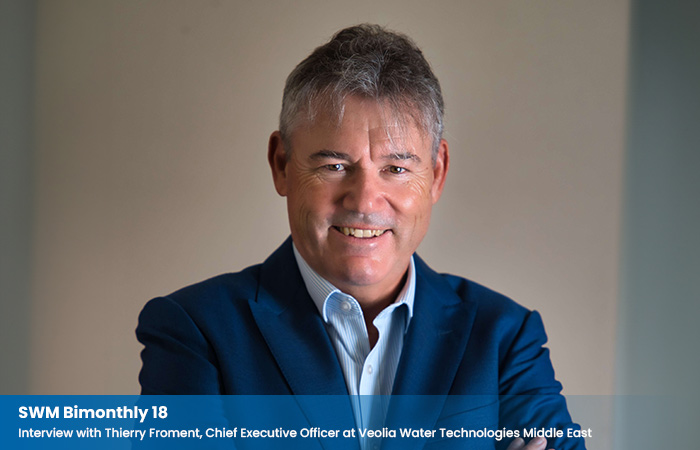
Interview with Mark Hedges, Asset Management Executive Director, EWEC
- RO water desalination is a key strategic pillar in our plan to decouple power and water generation and decarbonise the energy sector
- The Taweelah reverse osmosis facility recently became the world’s largest RO desalination plant after surpassing 90 per cent capacity
- Finding the optimal locations for developing and building new water desalination projects in close proximity to water consumers is key
- The average carbon emissions intensity of water production will fall from 11.5 kg/m3 in 2019 to an estimated 1.4 kg/m3 by 2029
- Low-carbon intensive reverse osmosis water desalination projects significantly contribute to the UAE’s sustainability objectives
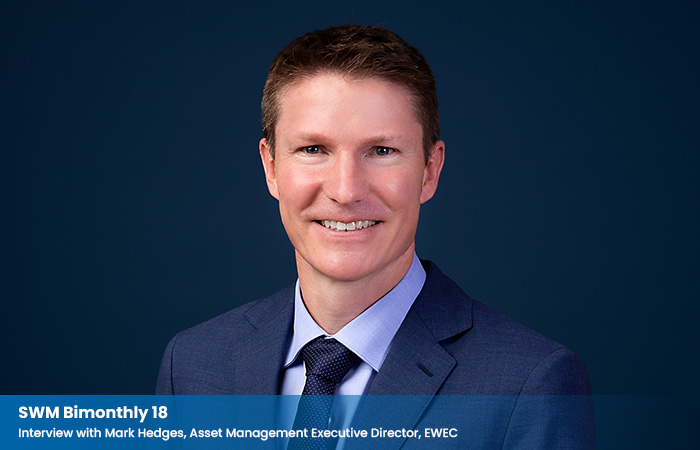
Interview with Fady Juez, Managing Director at Metito
- The Barge-mounted SWRO Desalination Plant was developed by Metito in partnership with The Saudi National Shipping Company (Bahri)
- Floating desalination plants have several advantages, from lower land costs, to being easily towed, to reduced commissioning time
- The barges are scalable due to their modular design, with the possibility of post treatment facilities in a modular configuration too
- The project enables Saudi Arabia to meet Vision 2030 and National Water Strategy goals to provide high-quality water in line with SDG 6
- Saudi Arabia currently produces 20% of global desalinated water; this presents a significant opportunity for privatization
- AWID is a first-of-its-kind platform to develop climate-smart water projects at scale and to increase water security across Africa
.jpg)
Interview with Christos Charisiadis, Brine Innovation Manager, NEOM portfolio at Worley
- By utilizing renewable energy sources, desalination projects can reduce their carbon footprint and contribute to a more sustainable future
- It is likely that more efforts will be directed toward achieving renewable energy-powered desalination and zero liquid discharge in the future
- Extracting materials or resources from the brine generated during desalination or other water treatment processes aims to minimize waste
- Brine valorization can contribute to the circular economy and address the environmental challenges associated with water treatment processes
- The economic viability of brine valorization projects will depend on factors scale, infrastructure requirements, and regional market conditions
- The Zero Liquid Discharge (ZLD) strategy has gained attention and development in recent years due to its potential for mitigating water scarcity
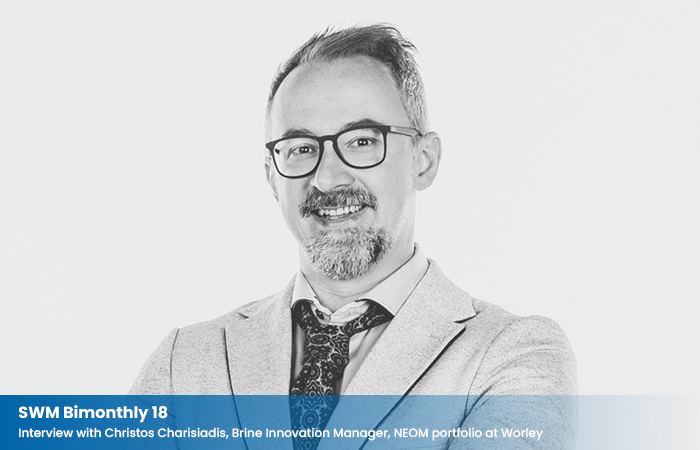
Interview with Jemima Oakey, Consultant on Middle Eastern Water and Food Security
- The Middle East’s water security challenges do not originate solely from climate change, although it has exacerbated water scarcity issues
- Since the signing of the Abraham Accords, signatory countries have quickly sought to make the most of Israel’s water management expertise
- Despite the Gulf being the region’s hub for cutting edge innovation related to water, it has high levels of domestic water consumption
- The high consumer demand drains much of the desalinated supply and prevents agriculture from moving away from groundwater abstractions
- Russia’s invasion of Ukraine has shone a harsh light on many Middle Eastern countries’ import dependency for their food security
- For regions such as the Middle East, where ensuring supply and sanitation coverage are a top priority, decarbonisation falls by the wayside
Interview with Dr Charlotte MacAlister, United Nations University. Institute for Water, Environment and Health
- More people die globally from a lack of safe WASH services than those killed in water-related disasters, and this is not improving
- Comprehensive and accurate water quality assessment at the national level remains a challenge despite a dedicated SDG 6 target
- WASH, water quality and governance represent more intractable, long term development challenges, linked to other socio-economic issues
- Deaths due to inadequate WASH provision are entirely preventable and should no longer occur anywhere in the world in the 21st century
- An abundance of freshwater without adequate infrastructure, support services, and strong governance does not translate into water security
- Many economies dominated by petroleum and mining have a high economic value per unit water, but not necessarily increased water security
Interview with Dr Jauad El Kharraz. Executive Director, Regional Center for Renewable Energy and Energy Efficiency (RCREEE)
- The RCREEE provides its members states technical assistance and guidance to develop their national energy transition strategies
- The integration of renewables and desalination has been cost-effective at small scale for a while, PV-RO being the most popular combination
- One option to reduce the costs of desalination for agriculture is to mix desalinated water with less low-quality groundwater
- We really need more innovation and investment in R&D in the area of energy storage to come up with satisfactory solutions
- Offshore desalination, promoted by some Scandinavian companies, takes advantage of their oil and gas exploration techniques
- Brine needs to be managed by exploring resource efficiency and circularity approaches to extract minerals and make it profitable
-web.jpg)
Interview with Dragan Tutic. CEO & Cofounder, Oneka Technologies
- Our solutions do not emit any GHG emissions; they are self-sufficient and do not require other energy sources to provide water
- Utilizing the renewable energy in ocean waves, Oneka has a great deal of room to grow into the most affordable solution on the market
- Under our “Build-Own-Operate” (BOO) business model, the client pays for the water on a volumetric (per cubic metres, gallons) basis
- There are many potential benefits from scaling up Oneka's technology in Chile, both for communities and for productive sectors
- The Glacier system will produce up to 500 m3 of freshwater per day, allowing us to reach a broader market: municipalities and industries
- We are now entering the acceleration phase of the business which includes the deployment of Iceberg buoys in our initial markets
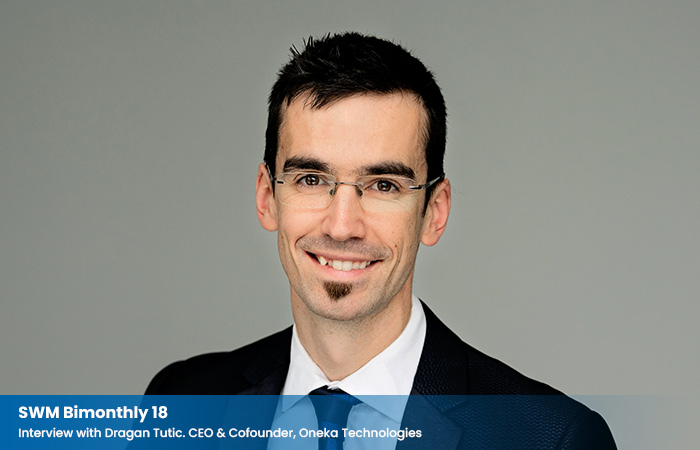
Opinion articles
Sheila Kee, Senior Product Manager at Temetra Analysis, Itron
Alejandro Sturniolo. Vice President of Marketing and Sustainability, H2O Innovation
Daniel Martens, Climate Risk Intelligence Lead at Royal HaskoningDHV, and Sheilla de Carvalho, Managing Director at Hydroinformatics Institute
Amr Abd El-Rhman Abdullah, Desalination Expert
Dr Alexandros Stefanakis. Assistant Professor, School of Chemical and Environmental Engineering, Technical University of Crete, Greece
Lawrence Field, Founder and CEO at WaterIQ Technologies
Quinn Jackson-Elliott, Vice President of Government Relations for Olea Edge Analytics
